Whenever any country faces difficult situations and, challenges,whether they are political or economical, the intellectuals and politicians at some point or other need to search their own country's history for the solutions. The historical events, people and their thoughts, that have shaped the country, prove to be the vital elements for solving the current challenges of the country[1].
Bharat Ratna Dr. Babasaheb Ambedkar was one of our greatest jurists, economists,crusading champion of human rights, and social reformer, whose sterling contribution to the framing of the Constitution of India and building modern India are recognized and acknowledged gratefully by the nation. As the Chairman of the Drafting Committee, he made establishment of social and economic democracy along with political democracy as the cornerstone of our Constitution. Veteran Statesman and Former Speaker of Lok Sabha Mr. Somnath Chatterjee narrated that “to Dr. Ambedkar, Constitution was the vehicle of social and economic change and he envisaged Parliament to actively facilitate social engineering through progressive legislations. He was a statesman of high standing, who will guide the nation to find solution to various problems, now confronting the nation”.
Ambedkar’s life time (14 April 1891 – 06 December 1956) begins in the last decade of the 19th century and extends up to a little after the mid-20thcentury. The opportunity of having higher education in USA and England in economics and various other subjects in social sciences and law equipped him intellectually to study contemporary socio-economic problems that emanated from a hierarchical social structure under an exploitative foreign rule. His probing analysis of the social order and the nature of exploitation perpetrated by the traditional social system was not only revealing but helped suggest pragmatic remedial measures which, due to lack of implementation, could not produce desired results, neither in his time nor thereafter.
What is well known about Dr. Ambedkar’s fights against Caste system in India,but what is little known is how Dr. Babasaheb Ambedkar had also impacted the economy through his views and thoughts. Ambedkar’s identity as an economist might have escaped their notice because of his fame as the Chairman of the Drafting Committee of the Constitution and as a leader of the backward and downtrodden sections of Indian society. Prof. Amartya Sen, the first Asian winner of the Nobel for economics, claimed during delivering Sir Dorabji Tata Memorial Lecture Series in May 2007 that “Ambedkar is my father in Economics. He deserves more than what he had achieved today. However, he was a highly controversial figure in his home country, though it was not the reality. His contribution in the field of economics is marvelous and will be remembered forever.”
As an economist, Dr. Ambedkar propagated that the state is the owner of the land. To him, the basic industries should be state monopolies and rest should be controlled by the private owners. He thought that the “democratic state socialism” can be achieved by state control over land, some basic industries, religions, caste and through an elaborate scheme of constitutional method. According to him, caste consciousness hampers all the economic systems[2]. He suggested nationalization of life insurance and advocated state management and state ownership in insurance sector for the benefit of the poor and down-trodden classes. The concept of state socialism is based on the principles of justice, liberty, equality and fraternity. To him, men are different from each other due to their birth, mental ability and faculty, hereditary and social atmosphere, but they should have right to equal opportunities through the constitutional method.
Surprising enough Dr. Ambedkar had also suggested free economy, globalization, liberalization and privatization as early as in 1923side by side with state owned basic industries, land and insurance. He had stressed that the value of a rupee must be kept stable if the policy of free economy is to be successful. Hence, one can say that Dr. Ambedkar, a man educated in USA and UK,was “not an armchair economist” but he was “an economist in thought and action with a rare vision[3]”.
His role as a labour leader is also not much known to the people of India.He launched Independent Labour Party on which the scheduled castes fought the elections of 1937. The programme of Independent Labour Party included “democratic state socialism” that distinguished from the welfare state, which provided a safety net to the poor but took little interest in the inequality of economic power and wealth. Ambedkar wanted socialism to be enshrined in the Constitution so as to place it “beyond the reach of a Parliamentary majority to suspend,amend or abrogate it[4]”. As Labour Member of Viceroy’s Executive Council from 1942 to 1946, Dr. Ambedkar introduced a number of welfare measures for the working class of India.Notable among them are establishment of employment exchanges, machinery for fixation of minimum remuneration, tripartite dispute settlement mechanism,fixation of working hours, working conditions, maternity leave, leave with pay etc. which, even today offers a safety net to labourers. These labour welfare measures take care of not only the productivity of labour, but insurance of the claim of legitimate share of labour in the total production or income of the industry.
As a social reformer, Dr. Ambedkar’s main aim was to destroy all kinds of social discriminations. According to him, the present social system, economic system, political structures and moral conditions are not suitable to establish a socialist society. It is essential to have radical changes in all spheres of society. The caste system of society is harmful for socialism. The caste system divides the society into four classes which is based on injustice. Therefore, various castes and sub-castes should be abolished.Immorality and inequality are harmful to establishing a socialist state. To establish a state controlled society based on morality, justice, peace,liberty, equality and fraternity, it is needed to apply all kinds of principles of equality in all fields, i.e., economic, social, political and religious.
On the issue of Untouchables, Dr. Ambedkar thought that while concentrating on their own struggle, the untouchables should also aim higher. Like Karl Marx, by whom he was deeply influenced, he thought that the Untouchables constituted a negative class, a concentrated expression of the evil of the prevailing system, and should become the vanguard of the oppressed groups in the Hindu society.[5] He argued that the Untouchables could not change Hindu society without forcing the caste Hindus to rethink their traditional beliefs and practices. Like all privileged groups, the latter would not do so unless they felt convinced that the Untouchables would not rest until the prevailing social order was radically restructured and they must change quickly or face the consequences.[6] Unlike many radicals, Dr. Ambedkar did not hesitate to criticize the Untouchables themselves, and urged them to put their house in order. He dedicated all his life to bring them together within a single political party and rightly stressed the badly needed radical economic programmes.[7]
Due to his prominence and support amongst the Untouchable community and other depressed and backward classes, he was invited to attend the Second Round Table Conference in London in 1932. As Gandhiji fiercely opposed separate electorate for Untouchables,though he accepted separate electorate for all other minority groups such as Muslims and Sikhs, saying he feared that separate electorates for Untouchables would divide Hindu society for future generations. Ambedkar agreed under massive coercion from the supporters of Gandhiji when Gandhiji went on a fast-unto-death in the Yerwada Central Jail, an agreement (known as Poona Agreement), which saw Gandhiji end his fast, and resulted in a certain number of seats reserved specifically for Untouchables.
Even though Dr. Ambedkar had quarreled with Congress and Gandhiji on certain basic issues, on the eve of independence he accepted the invitation of the Congress to join the Union Government and played his role in the building of the nation. As the Chairman of the Drafting Committee of the Constitution he played a major role in hammering a new constitution. He took all care to enshrine the progressive ideas and ideals of the National Congress in the Constitution.
Dr. Ambedkar is generally regarded as the great protagonist of reservation of seats in legislature and posts in government. But towards the end of his life, when he embraced Buddhism with his followers, he advised the Scheduled Castes to stand on their own legs instead of depending on crutches.
Dr. Ambedkar is a rare personality in the national life of India. He was a social revolutionary, a constitution-maker, an able parliamentarian,an administrator, and above all a constructive statesman of extraordinary caliber. He had entered public life equipped with a Ph.D. from the Columbia University, D.Sc. from London School of Economics, and Bar-at-Law from Gray's Inn. Bornas a “social leper” (as the Untouchables were being treated in those days),[8] Dr. Ambedkar rose to the stature of a towering personality in the national politics through perseverance as well as a profound sense of self-respect and human justice. Through his economic philosophy, Dr. Ambedkar came across not only as an economist of the highest order but also one with unmatched social commitment, a champion of human rights who detested the exploitation but did not favour violence, or any such extremes. As an ardent supporter of democracy, he warned us that political equality has no meaning unless it is complemented by economic and social equality, are lent less fighter against economic oppression but one who did not favour dictatorship of any kind including that of the proletariat and advocates constitutional provisions and democratic means to eradicate poverty and sufferings[9].
2015-16, the year of one hundred and twenty fifth birth anniversary of Dr. Ambedkar, is the most appropriate time to assess his legacy. Even after one hundred and twenty five years, Dr. Ambedkar remains a beacon and a titan who shaped India of today. There is no doubt that credit for much of India’s progress in many fields from a robust democracy to the upliftment of Scheduled Castes and other depressed classes owes a huge debt to him. But this is not a eulogy to that great son of India but an attempt at having an analytical look at his contributions and failures. It is unfortunate that his present day followers have misunderstood Dr. Ambedkar. His many followers appear to have been proved shallow in understanding him and neglected his economic thoughts. Most of the current time politicians and champions of Dalit movements use Dr. Ambedkar ‘in piecemeal’ and not as a‘whole’. Hence, there is crying need for an objective study of Dr. Ambedkar.The nation still awaits a genuine assessment of one of the giant leaders of modern India.
Seminar Plan and Topics
The topics identified for the Regional Symposium to be held during December 1-2-3, 2016 are just for the reference for the contributors. Within the framework of legacy of Ambedkar, papers are invited having six broad themes. The following can be the sub-themes to be covered under six main themes
1. Political Legacy of Ambedkar: Analysis and Appraisal
- Establishment of Democratic Institutions
- Pragmatic but Confrontational Orientation to Politics
- Political Solidarity for Untouchables and Depressed Classes
2. Ambedkar as an Economist: Analysis and Appraisal
- Ambedkar on Agriculture and Land Reforms
- Nationalization of Big Industries vis a vis Free Enterprises Economy
- Democratic State Socialism
- Establishment of Financial Institutions and Commissions
- Ambedkar on Population Control and Family Planning
- Ambedkar on Need for State-run Insurance Companies
3. Ambedkar as a Labour Leader: Analysis and Appraisal
- Labour Movement and Ambedkar
- Ambedkar on Uniformity in Labour Laws
- Ambedkar’s Views on Employment Exchanges for Skilled and Semi-skilled Workers
- Ambedkar on Social Security
4. Ambedkar as a Social Reformer: Analysis and Appraisal
- Crusader for Untouchables and Depressed Classes
- Annihilation of Caste System
- Confrontation with Gandhiji
5. Ambedkar as a Jurist and Constitution Expert: Analysis and Appraisal
- Ambedkar’s Pragmatic Orientation on Laws
- Constitution and Ambedkar
- Ambedkar’s Orientation towards Hindu Code Bill
- Ambedkar’s Views on Conflict between Communal Law and Secular Law
6. Ambedkar and Religions: Analysis and Appraisal
- Ambedkar’s Views on Hinduism,Christianity and Islam
- Indian History: Struggle between Buddhism and Brahminism
- Buddhism: Way for Democracy and Socialistic Pattern of Society
- Ambedkar’s Views on Conversion
Venue
The seminar will be held during December 1-2-3, 2016 at the Centre for Culture and Development, Vadodara, Gujarat. Vadodara is one of the well-developed cities, popularly called the cultural capital of Gujarat. It is well connected by rail and air network to the rest of India. The CCD campus is about 10km from Vadodara railway station. From any point in Vadodara city, come toGotri and take the road to Sevasi – Sindhrot. The CCD campus is about one and half kilo meter from Sevasi village on the main road, next to Baroda Homeopathic College and Xavier Technical Institute.
Submission of Papers
Researchers and other professionals are invited to submit their abstracts (250 words) on the seminar themes. Those whose abstracts are selected may send a soft copy of their papers to the following email address: centreforculture@gmail.com.All contributors should submit a brief CV and passport size photograph. The paper must not exceed 4,000 words limit(including tables and appendices). Abstracts of all the papers accepted will be published and distributed among the participants. Selected papers will be published as a volume.
Important Dates
Last Date for Receipt of Abstracts : November 5, 2016
Last Date for Receipt of Full Length Papers : November 25, 2016
Travel Support and Accommodations
Travel fare by Air or II AC (Railway) will be reimbursed. Accommodation and local hospitality will be provided to the delegates at the institute guesthouse and nearby hotel/s.
[1]http://www.baiae.org/resources/articles-essays/113-impact-of-dr-ambedkar%E2%80%99s-thoughts-on-indian-economy.html retrieved on February 19, 2016
[2]Sarkar, Badal (2013): “Dr. B. R. Ambedkar’s Theory of State Socialism”, Indian Research Journal of Social Sciences, Vol. 2 (8), 38-41, August, 2013.
[3] http://www.thestatesman.com/news/opinion/ambedkar-the-economist/57688.html
[4] Parekh, Bhikhu (2009): “Ambedkar’s Legacy”, Dr. B. R. Ambedkar Memorial Lecture2009, Ambedkar University,Delhi, p.16
[5] Velerian Rodrigues , ed. (2002): “Essential Writings of B.R. Ambedkar”, Oxford University Press, New Delhi
[6] Parekh, Bhikhu (2009): “Ambedkar’s Legacy”, Dr. B. R. Ambedkar Memorial Lecture 2009, Ambedkar University, Delhi, p.11
[7] Ibid p. 20
[8] Pradhan, Atul Chandra (2012): “B. R. Ambedkar’s Role in Indian Politics”,Odisha Review, January, 2012, pp. 16-17
[9]Jadhav Narendra (1991): “Neglected Economic Thoughts of Babasaheb Ambedkar”,Economic and Political Weekly, Vol. XXVI, No. 15, April 13, 1991, pp. 980-982

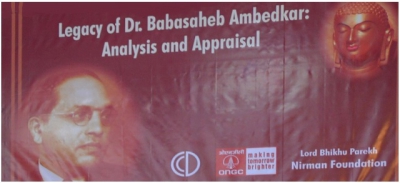
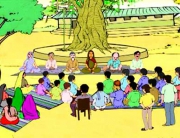
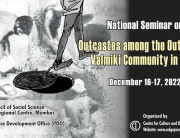
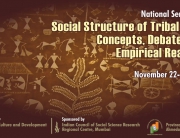

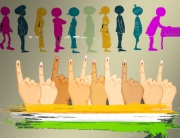
Add Comment